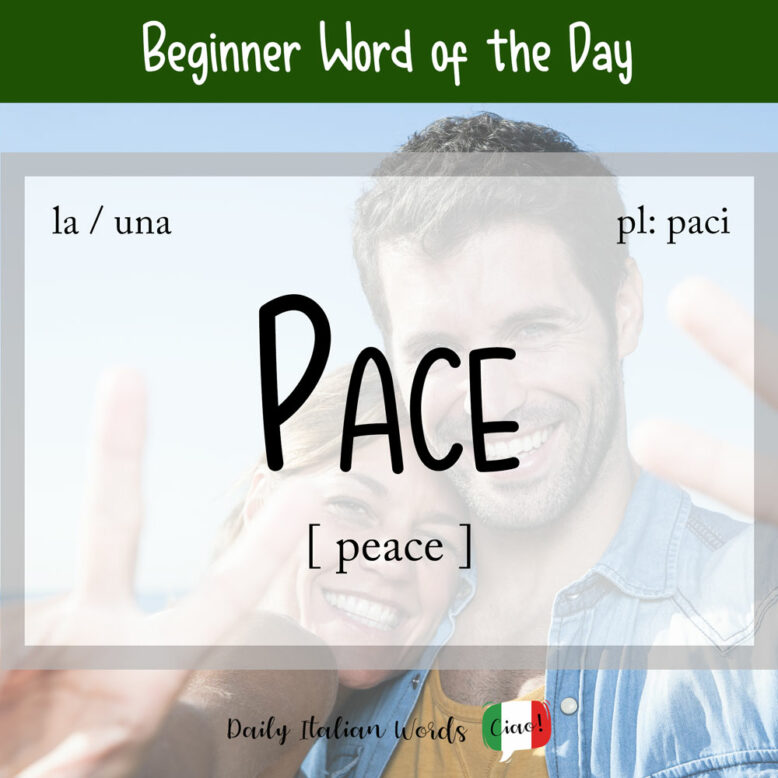In both English and Italian, the word peace – or pace (feminine noun) in Italian – can refer to a personal state of tranquillity or the complete absence of hostility and violence on a larger societal scale.

Vorrei che ci fosse la pace nel mondo.
I wish there were peace on earth.
In Italian, to leave (someone) alone translates as lasciare (qualcuno) stare, but you can also say lasciare (qualcuno) in pace.
Per favore, lasciami in pace. Non voglio vedere nessuno.
Please, leave me alone. I don’t want to see anyone.
Non dare pace, on the contrary, means to not leave someone alone.
Mio fratellino non mi dà mai pace!
My little brother never leaves me alone!
By making the verb reflexive (darsi instead of dare), you end up with the expression cannot be consoled. It is used when someone cannot or refuses to accept an unpleasant event and continues to brood about it.
Mario non sa darsi pace per la morte del suo gatto.
Mario cannot reconcile himself to the death of his cat.
If that person is eventually able to come to terms with the sad event, then you can use the expression mettersi il cuore in pace (lit: put one’s heart at peace).
Ormai mi sono messo il cuore in pace, non potrò mai sposarla.
I’ve resigned myself to the fact that I’ll never be able to marry her.
If you’ve had a fight with a friend or family member and wish to patch things up, you can use an expression that should sound familiar to English ears: fare (la) pace (to make peace).
Voglio fare pace con mia sorella. Sono anni che non ci parliamo.
I want to make peace with my sister. We haven’t spoken for years.
Likewise, mettere pace (lit: to put peace) is used when two parties come to an understanding after a disagreement.
Spero che sia possibile mettere pace fra di loro.
I hope it’s possible to get them to come to an understanding.
Some other expressions containing the word pace include:
- in santa pace = in peace, alone
- pace dei sensi = inner peace
- trattato di pace = peace treaty
- Che la pace sia con te. = God bless you
Heather Broster is a graduate with honours in linguistics from the University of Western Ontario. She is an aspiring polyglot, proficient in English and Italian, as well as Japanese, Welsh, and French to varying degrees of fluency. Originally from Toronto, Heather has resided in various countries, notably Italy for a period of six years. Her primary focus lies in the fields of language acquisition, education, and bilingual instruction.


